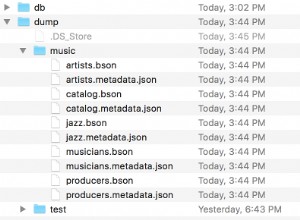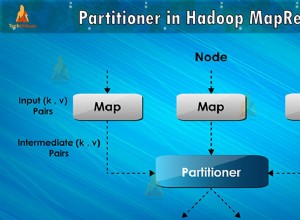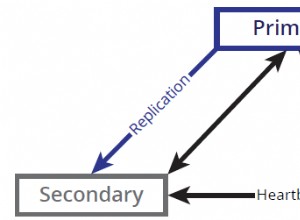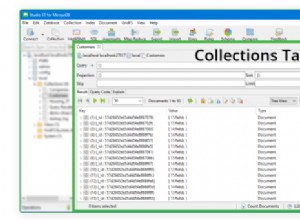Die Redis-Transaktionsschnittstelle, die vom C#-Redis-Client von ServiceStack implementiert wird.
Einführung #
Die Redis-Transaktionsschnittstelle bietet nützliche Überladungen, mit denen Sie jede IRedisTypedClient-Operation innerhalb einer einzigen Transaktion in die Warteschlange stellen können. Die API bietet Unterstützung für einen Rückruf, sodass Sie auch Zugriff auf alle Rückgabewerte haben, die als Teil der Transaktion zurückgegeben werden.
Nutzungsnummer
Nachfolgend finden Sie ein einfaches Beispiel, das zeigt, wie Sie auf die Transaktion zugreifen, sie verwenden und festschreiben.
var typedClient = Redis.GetTypedClient<MyPocoType>();
using (var trans = typedClient.CreateTransaction())
{
trans.QueueCommand(r => r.Set("nosqldbs", new MyPocoType {Id = 1, Name = "Redis"));
trans.Commit();
}
Für eine Transaktion, die mit String-Werten arbeitet, siehe IRedisTransaction.
Details #
public interface IRedisTypedTransaction<T>
: IDisposable
{
void QueueCommand(Action<IRedisTypedClient<T>> command);
void QueueCommand(Action<IRedisTypedClient<T>> command, Action onSuccessCallback);
void QueueCommand(Action<IRedisTypedClient<T>> command, Action onSuccessCallback, Action<Exception> onErrorCallback);
void QueueCommand(Func<IRedisTypedClient<T>, int> command);
void QueueCommand(Func<IRedisTypedClient<T>, int> command, Action<int> onSuccessCallback);
void QueueCommand(Func<IRedisTypedClient<T>, int> command, Action<int> onSuccessCallback, Action<Exception> onErrorCallback);
void QueueCommand(Func<IRedisTypedClient<T>, bool> command);
void QueueCommand(Func<IRedisTypedClient<T>, bool> command, Action<bool> onSuccessCallback);
void QueueCommand(Func<IRedisTypedClient<T>, bool> command, Action<bool> onSuccessCallback, Action<Exception> onErrorCallback);
void QueueCommand(Func<IRedisTypedClient<T>, double> command);
void QueueCommand(Func<IRedisTypedClient<T>, double> command, Action<double> onSuccessCallback);
void QueueCommand(Func<IRedisTypedClient<T>, double> command, Action<double> onSuccessCallback, Action<Exception> onErrorCallback);
void QueueCommand(Func<IRedisTypedClient<T>, byte[]> command);
void QueueCommand(Func<IRedisTypedClient<T>, byte[]> command, Action<byte[]> onSuccessCallback);
void QueueCommand(Func<IRedisTypedClient<T>, byte[]> command, Action<byte[]> onSuccessCallback, Action<Exception> onErrorCallback);
void QueueCommand(Func<IRedisTypedClient<T>, string> command);
void QueueCommand(Func<IRedisTypedClient<T>, string> command, Action<string> onSuccessCallback);
void QueueCommand(Func<IRedisTypedClient<T>, string> command, Action<string> onSuccessCallback, Action<Exception> onErrorCallback);
void QueueCommand(Func<IRedisTypedClient<T>, T> command);
void QueueCommand(Func<IRedisTypedClient<T>, T> command, Action<T> onSuccessCallback);
void QueueCommand(Func<IRedisTypedClient<T>, T> command, Action<T> onSuccessCallback, Action<Exception> onErrorCallback);
void QueueCommand(Func<IRedisTypedClient<T>, List<string>> command);
void QueueCommand(Func<IRedisTypedClient<T>, List<string>> command, Action<List<string>> onSuccessCallback);
void QueueCommand(Func<IRedisTypedClient<T>, List<string>> command, Action<List<string>> onSuccessCallback, Action<Exception> onErrorCallback);
void QueueCommand(Func<IRedisTypedClient<T>, List<T>> command);
void QueueCommand(Func<IRedisTypedClient<T>, List<T>> command, Action<List<T>> onSuccessCallback);
void QueueCommand(Func<IRedisTypedClient<T>, List<T>> command, Action<List<T>> onSuccessCallback, Action<Exception> onErrorCallback);
void Commit();
void Rollback();
}




